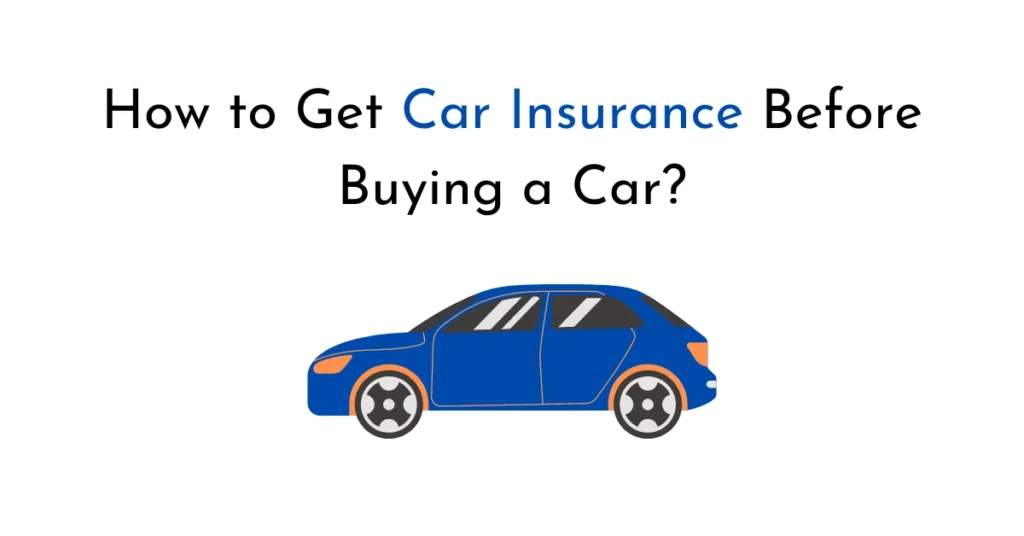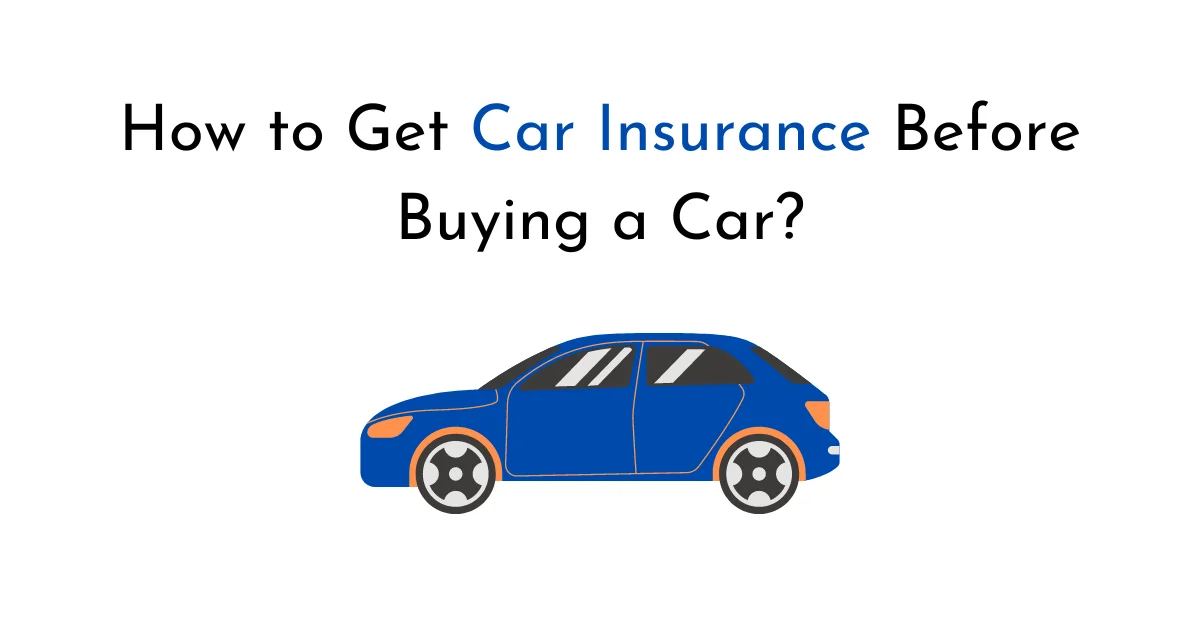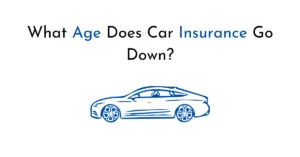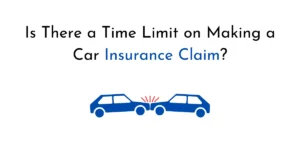Buying a car is an exciting milestone, but before you drive off the lot, it’s important to ensure you have proper insurance coverage in place.
Securing car insurance before buying a car not only protects your investment but also ensures compliance with legal requirements.
In this comprehensive guide, we will walk you through the steps to obtain car insurance before purchasing a vehicle, common considerations, and frequently asked questions to help you make informed decisions.

Why Get Car Insurance Before Buying a Car?
Purchasing car insurance before buying a car is essential for several reasons:
- Legal requirement: In most jurisdictions, having car insurance is mandatory to legally drive a vehicle. It’s crucial to comply with these legal requirements to avoid fines, penalties, or even the suspension of your driver’s license.
- Protection against financial loss: Car insurance provides financial protection in the event of accidents, theft, or damage to your vehicle. By having insurance coverage in place, you mitigate the risk of significant financial loss.
- Immediate coverage: Getting car insurance before buying a car ensures that you have immediate coverage as soon as you drive off the dealership lot. This means you can start driving your new vehicle with peace of mind, knowing that you’re protected.
Steps to Get Car Insurance Before Buying a Car
Follow these steps to obtain car insurance before purchasing a vehicle:
- Research insurance providers: Start by researching reputable insurance providers in your area. Look for insurers with good customer reviews, competitive rates, and a wide range of coverage options.
- Gather necessary information: Before contacting insurance providers, gather the necessary information. This includes your personal details, driver’s license number, previous insurance history (if any), and potential vehicle information (make, model, year, and VIN).
- Get quotes: Contact multiple insurance providers and request quotes based on the vehicle you intend to purchase. Provide them with accurate information to receive accurate quotes. Compare the quotes to find the best coverage and rates that suit your needs and budget.
- Choose coverage options: Review the coverage options offered by different insurance providers. Consider the minimum requirements mandated by law, as well as additional coverage options such as comprehensive, collision, and liability coverage. Select the coverage options that best meet your needs.
- Provide necessary documents: Once you’ve selected an insurance provider, they will require certain documents to finalize the policy. These documents may include identification, driver’s license, vehicle details, and payment information. Provide the necessary documents promptly to expedite the process.
- Make payment: Pay the premium for your car insurance policy. You can usually choose between monthly, quarterly, or annual payment plans. Select the payment option that works best for you and ensure timely payments to maintain continuous coverage.
- Receive proof of insurance: After making the payment, you will receive proof of insurance, typically in the form of an insurance ID card or electronic document. Keep this proof readily accessible as it may be required when registering the vehicle or if you are pulled over by law enforcement.
- Activate coverage when you buy the car: Once you purchase the car, contact your insurance provider and provide them with the necessary information about the vehicle, such as the VIN and purchase date. They will update your policy accordingly, and your coverage will be activated for the new vehicle.
FAQs
Q: Can I buy a car and drive it home without road tax?
A: The requirements for road tax vary by jurisdiction. In some cases, you may be able to drive the car home without road tax if you have temporary insurance coverage. However, it’s important to check the specific regulations in your area to ensure compliance.
Q: Can I drive my new car on my old car insurance?
A: Typically, insurance policies are tied to specific vehicles. While some insurance policies may provide temporary coverage for a newly purchased car, it’s essential to contact your insurance provider to confirm if your old car insurance extends to the new vehicle. In most cases, you will need to update your insurance policy to include the new car.
Q: Can you drive a new car without tax?
A: Driving a new car without tax is generally not permitted in most jurisdictions. Before driving the car, you’ll need to ensure that it has valid road tax. Check with the local vehicle licensing authority or the relevant government agency to understand the tax requirements for your area.
Q: Are you automatically insured to drive another car?
A: Insurance coverage for driving another car can vary depending on the policy and the insurance provider. While some insurance policies offer a “driving other cars” extension, it is not a universal feature. It’s crucial to check your insurance policy or contact your insurance provider to determine if you have coverage for driving another vehicle.
Q: Can I insure my new car before I pick it up?
A: Yes, it is possible to insure your new car before you pick it up. Many insurance providers offer “driveaway insurance” or “cover note” options, which provide temporary coverage until you can register the vehicle in your name. Contact your insurance provider to discuss this option and ensure that you have proper coverage in place when you take possession of the car.



